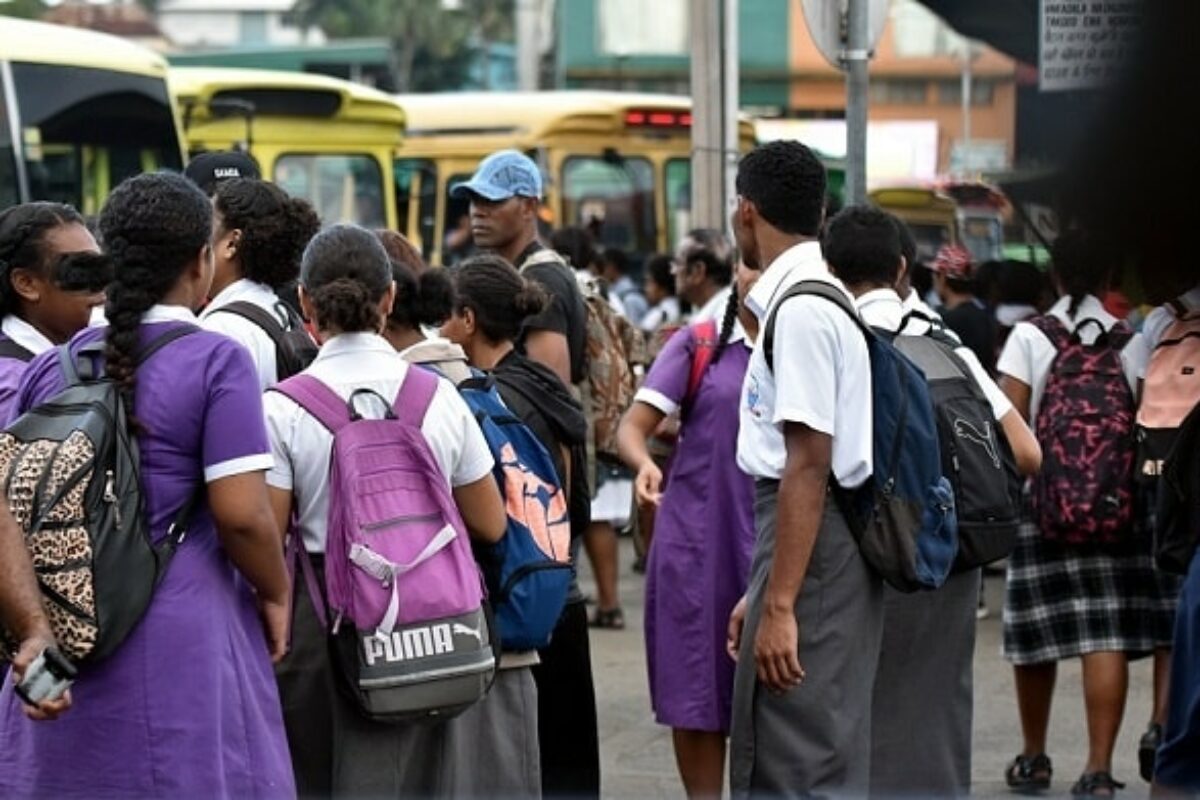Criticisms Regarding School Dropout Rates and Drugs
Message from the Deputy Secretary Primary/Secondary, Mr Timoci Bure
The School Management Association of Fiji president, Govind Singh, has recently expressed concerns regarding the challenges facing our education system. The Deputy Secretary Primary/Secondary responded that “While we appreciate Mr. Singh’s enthusiasm in proposing potential solutions, we firmly believe that constructive dialogue with the Ministry is essential for fostering effective educational policies. The Ministry recognises the importance of collaboration among all stakeholders in the education sector and we encourage open communication to address these critical challenges”.
Mr Bure alluded that the data on school dropouts shared in the last parliamentary session reflected a comprehensive five-year analysis. “It is vital to note that the Ministry of Education is actively engaged in implementing strategies to support students at risk of dropping out, as well as to re-engage those who are currently out of school,” he added.
Every education system worldwide faces the challenges of student retention and school dropout rates. Addressing the issue of early school leavers is particularly complex, especially when some students may be reluctant to pursue formal education. Recent discussions on dropout rates highlight the importance of engaging in a nuanced dialogue that acknowledges the intricacies of the education landscape. Criticism aimed solely at the Minister for Education regarding dropout statistics tends to oversimplify a multifaceted issue and fails to consider the various factors that contribute to this significant concern.
Mr Bure asserted that “as we strive to improve our education system, it is crucial to engage all stakeholders in constructive conversations that can lead to effective solutions.” Fiji’s Coalition government champions a consultative approach to ensure that stakeholders contribute meaningfully to decision making. Collaborative efforts will be essential in addressing the root causes of dropout rates and fostering an environment where all students have the opportunity to succeed.
A comprehensive examination of our communities reveals a concerning trend; many early school leavers are choosing paths that emphasise idleness and a desire for flexibility. It is important to recognise that the rising rates of school dropouts are not the result of a single cause or attributed to any one individual, including the Ministry of Education alone. Other factors such as economic disparities, cultural barriers, mental health challenges, family instability and a waning interest in education collectively influence a student’s decision to leave school. Numerous studies conducted in Fiji and across the region have identified these critical factors, underscoring the need for a holistic understanding of the challenges faced by students, which often extend beyond the walls of the classroom.
The Deputy Secretary for Primary/Secondary Education, advocates for developing comprehensive strategies that address the diverse needs of students. Under the framework of the 2023 Denarau Declaration, in which Mr. Govind Singh was a part of, thematic area 1A focuses on Curriculum and Sustainable Development and includes provisions to address the issue of school dropouts. The Ministry of Education recognises as a strategic priority the necessity to investigate the root causes of school dropouts, as well as to explore effective strategies for facilitating re-entry into the formal education system. “In line with this commitment, our departments have initiated the provision of alternative educational pathways for students at risk of disengagement as well as for those wishing to re-engage with their education through accessible vocational courses,” Mr Bure said. “These alternatives aim to support students who may not thrive in traditional educational environments, allowing them to achieve success and fulfilment,” he added.
According to Mr Bure, the Ministry is fully committed to enhancing the analysis of dropout data to better identify trends and design targeted interventions that are responsive to the evolving needs of our Fijian communities.
Our commitment extends to increasing investment in school services, providing enhanced support for economically disadvantaged families and implementing initiatives designed to cultivate an inclusive educational environment that celebrates each student’s unique journey. These efforts are vital in ensuring that all students have the opportunity to succeed and complete their education.
In Fiji’s context, it is vital to approach the issue of school dropouts with a spirit of collaboration rather than placing blame. The Ministry of Education has proactively implemented a range of strategies to combat this pressing concern and is eager to work alongside various stakeholders to form a robust task force dedicated to addressing these challenges effectively. Constructive dialogue with key partners, including school management and community and religious leaders, is essential in moving forward beyond mere criticism.
Mr Timoci Bure stated regrettably that “there have been instances where individuals have sought personal gain at the expense of the reputation of the Ministry of Education. Such actions detract from our shared vision, mission and principles undermining the significant progress we are striving to achieve.”
He added, “We encourage all parties involved to engage in meaningful dialogue with the Ministry before forging opinions or taking actions that misrepresent our intentions. Together, let us build a cooperative framework that not only addresses the issue of school dropouts but also ensures a brighter future for every student in our education system.”
On the issue of drugs, the Deputy Secretary for Primary/Secondary Education admitted that it is an undeniable fact that drugs are being brought to school by students and also used in school by students as has been highlighted in the media. The social environment students go through everyday, the people they meet and the different experiences they go through play a major role in the type of students they become.
The drug cases received according to reports from schools highlight that students get drugs from their friends or other adults and not parents as highlighted in the media. If parents are involved as highlighted in the media then Police may have this information through their own investigation.
Mr Bure stated that the drug issue is perceived as a mental health problem due to the complex socio-economic issues students and parents face everyday. “It can be addressed professionally and psychologically through proper mental health support from the parents, guardians, community, faith based organisations, civil societies and government,” he added.
According to Mr Bure, the Ministry of Education with its drug policy and procedures in place, believes that the drug problem is legally and adequately addressed, whether it involves a student being a drug perpetrator or a drug user. “The Ministry of Education is working closely with other stakeholders and government departments in supporting any student and parents who are involved in any drug cases to ensure they recover from the harm,” he added.
Additionally, the Ministry also engages the services of the faith-based leaders, chaplains in guiding students spiritually. Daily devotion is compulsory in every school where students are taught on the importance of spiritual development. School chaplain and faith-based leaders also go through training on child protection, behaviour management, addressing social problems faced by students and basic counselling skills. The Ministry of Education’s counselling and mentoring services are provided by the 4 Divisional Counsellors, 4 SAAC Counsellors, 30 SAAC Mentors, 30 MOE counsellors in schools and other NGOs providing counselling services. These counsellors provide counselling support to students in the 9 education districts through proper coordination and collaboration. The establishment of district counsellors and large school counsellors are in the Ministry plan.
The students involved with drugs, or any disciplinary issues are provided with all necessary support in schools with proper referral, case management and follow up. The spot checks have been found to be very effective in the schools that are doing it to ensure the safety of other students and teachers in schools.
The government through the Counter Narcotics Strategy is working closely with partners in addressing the drug issue in Fiji. This involves improved legislations and policies, addressing supply, demand and harm reduction strategy, Drug Court, Drug Rehabilitation centre and effective, efficient professional service providers.
Mr Bure asserted that, “rather than focusing on the problem, we must focus on the resolution to improve our educational systems so that all students access quality education and no child is left behind.” He added that, “acknowledging these complexities is essential as we strive to create an effective response to this pressing issue and ensure that all students have the support they need to succeed in their educational pursuits.”
Collaboration among parents, guardians, community organisations, faith-based groups and government entities is critical to providing the necessary support framework for the children of Fiji.

